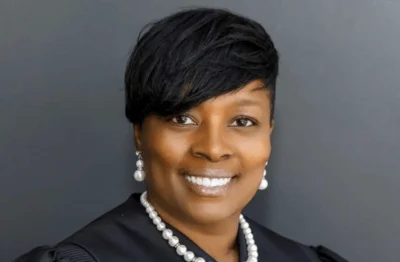The Foundation for Individual Rights in Education (FIRE) new report highlighting campus policies that prohibit free speech ranks Chicago State University among the most prohibitive, a posting on the group’s website said.
The report, "Spotlight on Speech Codes 2018: The State of Free Speech on Our Nation’s Campuses," highlights policies at 461 universities in the United States. According a release announcing the report publication, 90 percent of colleges have somewhat prohibitive policies, while one in three – including Chicago State – have severely restrictive policies. FIRE assigns each school a rating based on stoplights, with just 37 schools earning a green light. Chicago State is a red-light institution.
“More institutions than ever before understand the importance of free speech and are taking concrete steps to protect it,” FIRE Vice President of Policy Research Samantha Harris said in the posting. “There is still a lot of work to be done, though – and we look forward to working with more colleges and universities in the years to come.”
Chicago State received a red-light rating because of its computer usage policy, which places a vague and therefore potentially wide ban on online communications.
“Electronic mail and all other electronic communication (including websites and blog posts) should adhere to the university standards of conduct which prohibits any communication which tends to embarrass, humiliate or shed a negative light on any member of the community,” Chicago State’s policy reads, according to FIRE’s report. “Respect others you contact electronically by avoiding distasteful, inflammatory, harassing or otherwise unacceptable comments.”
In addition to the school’s online communications policy, Chicago State also has a Code of Excellence in place that restricts student behavior. The code prohibits activities like hazing, intimidation, taunting, teasing, baiting, ridicule, insults, harassment and discrimination; and puts in place a university mechanism to punish those behaviors.
“To ensure that a collegial and cooperative educational environment is maintained, Chicago State University has the right to investigate allegations, conduct hearings and levy sanctions against any student found responsible for violating the university’s Code of Excellence and/or the Student Code of Conduct,” the code reads, according to FIRE.
The limitations of the university’s policies are not purely theoretical, as born out by a 2013 case involving faculty speech. Several faculty members used a blog to air criticisms of the administration, leading to administration efforts to silence and retaliate against those professors, who took the case to court and are still making their case.
Chicago State also has several yellow-light policies. The school’s Electronic Harassment/Cyberbullying Policy, Sexual Harassment and Sexual Misconduct Policy and Posting Policy from the student handbook are all questionable according to FIRE, variously limiting student behavior and speech, and how that speech can be made public.
In FIRE’s release on its report, the group noted that Congress is currently debating a measure that would allow for closer monitoring of university and college speech codes. The proposed change in the Higher Education Act would require that school’s report their speech codes when seeking reauthorization.





 Alerts Sign-up
Alerts Sign-up